Qaddafi defiant as fighting tears Libyan rebel stronghold
Qaddafi gives a defiant response to world leaders planning military action against him.
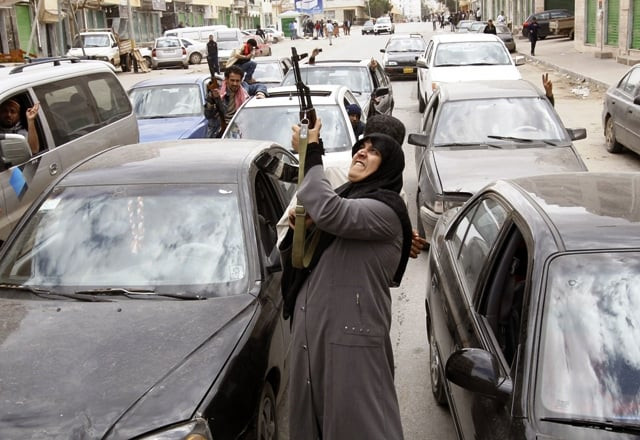
A huge plume of smoke rose over Libya's second city as thousands of people fled eastward after a series of air strikes and sustained shelling, an AFP reporter said.
Correspondents reported that tanks belonging to Qaddafi's forces had entered the city of more than one million people mid-morning.
The Libyan government insisted it was observing a ceasefire it had announced on Friday, shortly after the United Nations Security Council voted to authorise the use of force against Qaddafi's troops to spare civilians.
It said its armed forces were under attack west of Benghazi and had responded in self-defence.
But the rebels, who have been trying to overthrow the Libyan leader for more than a month, said his troops had continued to bombard cities, violating the ceasefire continuously since its declaration.
"The gangs of al Qaeda attacked the units of the Libyan armed forces stationed to the west of Benghazi," a statement carried by the official Jana news agency said, using Tripoli's term for the insurgents.
It accused the rebels of using "a helicopter and a fighter jet to bomb the Libyan armed forces in blatant violation of the no-fly zone imposed by the UN Security Council."
A warplane crashed in flames in a residential area of Benghazi, triggering celebratory gunfire from the rebels, but an insurgent commander later admitted it was one of theirs and had been shot down by Qaddafi's forces.
The pilot ejected from the aircraft, which was initially identified as a Russian-built MiG-23 fighter but said later to have been a French-made Mirage.
A number of military units defected to the rebellion soon after the revolt broke out.
In messages to French President Nicolas Sarkozy and British Prime Minister David Cameron, main sponsors of Friday's UN resolution, Qaddafi said they would regret interfering in his country's affairs, a spokesman said in Tripoli.
"If you intervene in our country you will regret it," the spokesman quoted Qaddafi as telling them, adding that the strongman had also sent messages to US President Barack Obama and UN chief Ban Ki-moon.
And he told Obama that the Libyan people were "prepared to die for me -- men, women and children."
On Friday, Obama delivered a frank ultimatum Qaddafi, threatening military action if he ignores non-negotiable demands for a ceasefire and a retreat from rebel bastions.
"Left unchecked, we have every reason to believe that Qaddafi would commit atrocities against his people," Obama said, reinforcing the international message. "Many thousands could die. A humanitarian crisis would ensue."
Libyan Foreign Minister Mussa Kussa said Saturday Tripoli had fulfilled all its obligations with regard to the UN resolution, and had asked UN Secretary General Ban Ki-Moon to send observers to monitor the ceasefire.
France was hosting what it said would be a "decisive" summit with the European Union, Arab League and African Union, as well as Ban, on taking military action in Libya.
France's ambassador to the UN, Gerard Araud, said he expected military intervention within hours of the summit.
Sarkozy, Cameron and US Secretary of State Hillary Clinton met ahead of the conference Saturday, focusing on sharing out the military roles in enforcing Resolution 1973, sources said.
Late Friday, the French presidency said France, Britain, the United States and Arab countries had told Qaddafi to "immediately" cease all attacks against his people or face the consequences.
A statement said "that a ceasefire must be put in place immediately, that is, that all attacks against civilians must come to an end."
It added that "Qaddafi must end his troops' advance on Benghazi and withdraw from Ajdabiya, Misrata and Zawiyah," referring to rebel-held towns attacked or captured by government forces in the past few days.
"That is not negotiable," it said, warning that if Qaddafi did not comply with Resolution 1973, he would face "consequences" from the international community and "the resolution will be imposed by military means".
The summit, hosted by Sarkozy, will also be attended by Clinton, Cameron, Arab League Secretary General Amr Mussa and EU foreign policy chief Catherine Ashton.
So far Belgium, Britain, Canada, France, Italy, Norway, Spain, Sweden, Qatar and the United States have said they will help to implement the no-fly zone.
Meanwhile, Libyan National Oil Corp chairman Shukri Ghanem said Saturday that Tripoli would honour all its engagements and contracts with foreign oil companies working in Libya.
Ghanem told a press conference in Tripoli that the country's oil production currently stands at 400,000 barrels per day (bpd), less than a third of normal as a result of the rebellion.
In another Middle East hot spot, medics in Yemen on Saturday raised the death toll from a sniper attack on protesters to 52 as thousands rallied despite a state of emergency imposed by the autocratic regime.
The slaughter in Sanaa on Friday was the bloodiest day in weeks of unrest that has shaken the regime of President Ali Abdullah Saleh, a key US ally in the war against Al-Qaeda on the Arabian Peninsula.
Clashes in the main southern city of Aden also left seven injured on Saturday when security forces fired tear gas and bullets to disperse anti-regime protesters, witnesses and medics said.
In Bahrain, beleaguered King Hamad pledged to bring in reforms as Shiite-led pro-democracy protesters against the Sunni monarchy said they would not give up despite being cleared by police from the central Pearl Square.
And in Syria, a Facebook page behind an unprecedented string of protests called for a new rally Saturday in the city of Homs, naming the venue in advance in a bold step under the iron-fisted regime of President Bashar al-Assad.
The fresh call for protests came a day after rights groups reported security forces killed four people and wounded hundreds in a rally in the southern city of Daraa.

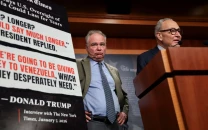
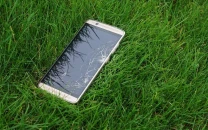
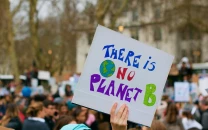

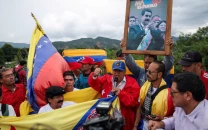
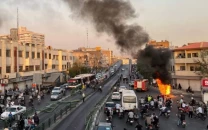











COMMENTS
Comments are moderated and generally will be posted if they are on-topic and not abusive.
For more information, please see our Comments FAQ